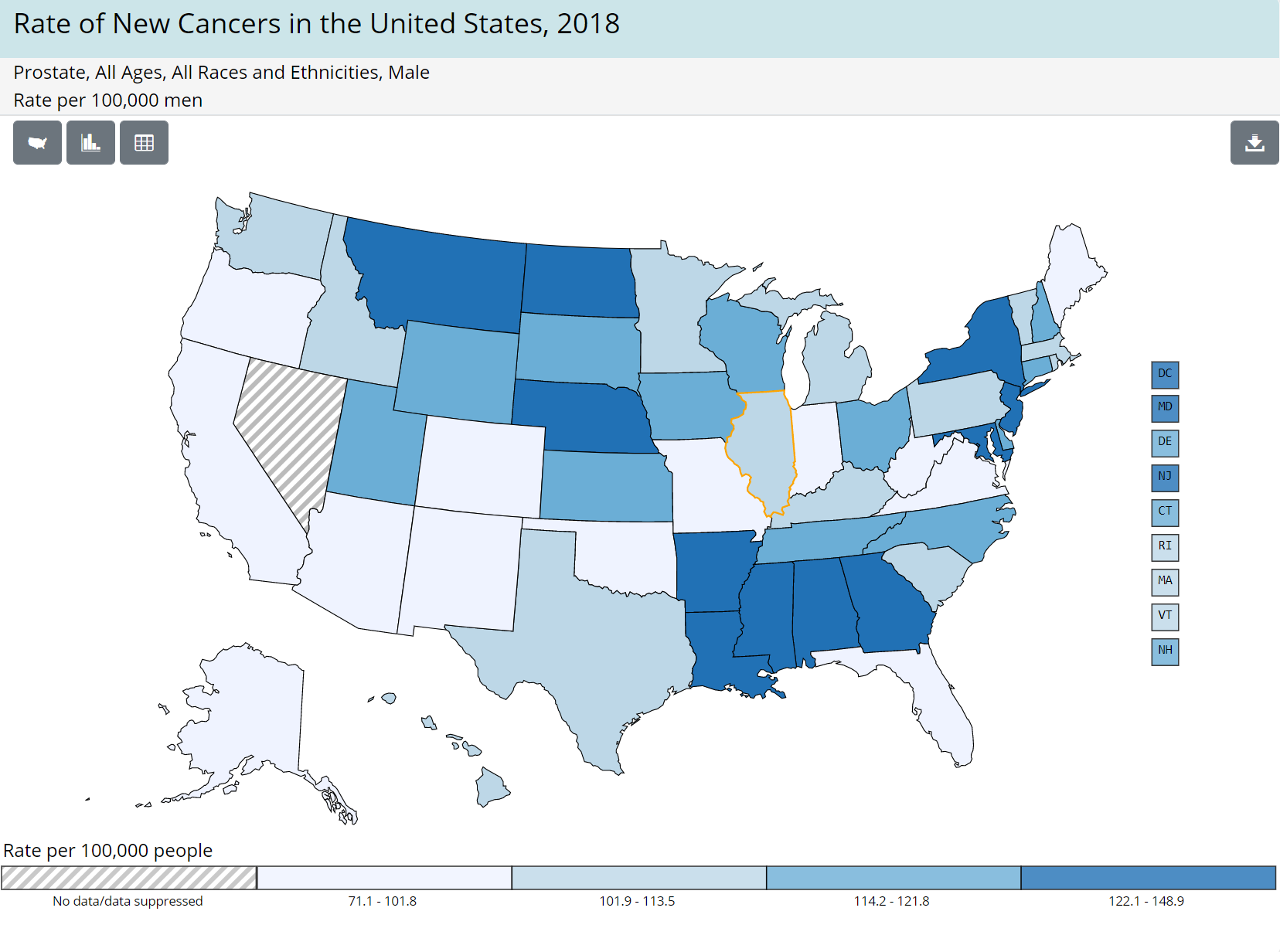Prostate cancer becomes more common as men age – 13 out of 100 men will be diagnosed with it. For men in Illinois, it is the most commonly diagnosed cancer. Prostate cancer is the second most common cause of death related to cancer.
Age is the biggest risk factor for prostate cancer. Also, Black men and those with a family history of prostate cancer are at a higher risk.
Prostate cancer screening is the best way to detect prostate cancer early. Prostate cancer that is found earlier is easier to treat. Current screening recommendations are:
- Age 40 – 49: One screening to determine your baseline
- The frequency after that will depend on your doctor’s recommendation based on results and risk factors
- Age 50 – 69: Yearly screening
- Your doctor may recommend a different frequency based on your results and risk factors
- Age 70+: Your doctor will help you determine whether you should continue with screenings
There are two tests to screen for prostate cancer – a PSA blood test and a digital rectal examination.
- A PSA test is a simple blood test that measures the amount of prostate-specific antigen circulating in your blood. Increased levels indicate that you could have prostate cancer. Further testing may be recommended in that case.
- A digital rectal examination is a test where a doctor manually checks the prostate by feeling it through the rectum. The doctor feels for lumps, hard spots, or other irregularities, which may indicate there is prostate cancer.
Take control of your health by getting screened for prostate cancer. Don’t delay and schedule your appointment now.


